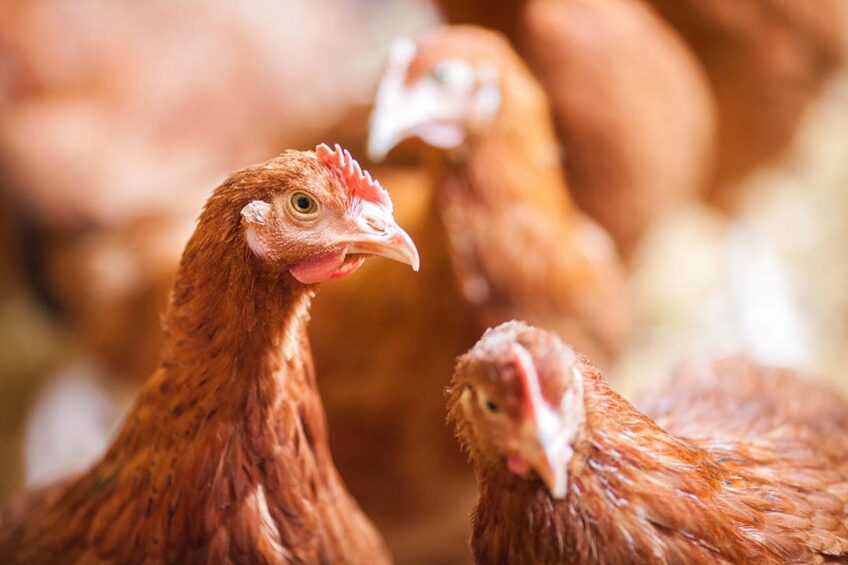Tougher baseline for animal welfare improvements launched

A new baseline for animal welfare improvements has been introduced, with tougher criteria, as investors seek more information on how companies deliver welfare performance.
The Business Benchmark on Animal Welfare (BBFAW)’s assessment criteria has changed substantially since the last benchmark in 2021, to put a greater focus on its role in driving meaningful changes and ensuring tangible improvements to the lives of farm animals reared for food. In particular, the number of questions on ‘Performance Impact’ increased from 10 to 20, and these questions now represent 55% of the overall benchmark score – up 10% since 2021.
The new criteria has also seen the introduction of new questions and a new pillar of assessment criteria focused on reducing reliance on animal-sourced foods in human diets. This has led to a resetting of the benchmark, with the BBFAW 2023 results representing a new baseline.
Animal welfare is integral to business strategy
The tougher criteria meant that none of the 150 leading food companies benchmarked received the top tier 1 status and just 3 – Marks and Spencer, Premier Foods and Waitrose – were in the second tier, which says animal welfare is integral to business strategy.
The study found that while 95% of food companies recognised farm animal welfare as a core business issue, 93% were given poor E or F ratings for ‘Performance Impact’ – a measure of whether farm animals in their supply chains are actually protected from inhumane practices such as close confinement or routine mutilation. Progress on issues such as the time farm animals spend in live transportation, or in close confinement, such as gestation crates, remains disappointingly slow.
And 19 global food companies, including Domino’s Pizza Inc (US) and Yum China Holdings (the owner of KFC in China) have yet to publish a farm animal welfare policy.
The study looked at 150 global producers, retailers and food service companies with combined revenues of US$4.9 trillion, including McDonalds, Tesco and Tyson Foods. The BBFAW report is supported by partners Compassion in World Farming and Four Paws and by a coalition of institutional investors, managing over US$2.3 trillion in assets.
The highest scoring companies on ‘Performance Impact’ were the 6 companies that received a C rating – Marks and Spencer (UK), Groupe Danone (France), Premier Foods (UK), Waitrose (UK), Cranswick PLC (UK) and Migros-Genossenschafts-Bund (Switzerland). Companies with the lowest F impact rating included Amazon Whole Foods, Domino’s Pizza, Muller and Tyson Foods.
Eggs leading the way
The report found that there are generally high levels of ambition on cage-free eggs, with 73% of the 141 companies sampled with eggs in their supply chain now having cage-free commitments.
At the other end of the spectrum, 18% of companies, including Tyson Foods and WH Group (which includes large US pork producer Smithfield), have no policy commitment to end the use of close confinement. Less than 1 in 10 companies with pigs in their supply chain (13 out of 137) have set credible targets to end sow stalls or gestation crates, which are currently banned in the UK, Sweden and several US states. BBFAW defines a credible target as a time-bound target that restricts crate use to no more than 4 hours, with Walmart and Cargill failing to meet this.
The majority of companies (52%) have no policy to manage routine mutilations, such as branding with hot irons or tail-docking in pigs and cattle.
Transport and antibiotics
Only 27% of assessed companies reported that live transportation of farm animals is restricted to short journeys (i.e., 4 hours or less for poultry and rabbits and 8 hours for other species). And only 40% of companies have commitments in place to end prophylactic and routine metaphylactic antibiotic use, despite the risk of surging antibiotic resistance.
Commenting on the report’s findings, Nicky Amos, BBFAW executive director, said that while there were some positive signs, more needed to be done: “The analysis shows there’s a long way to go for the food sector to turn awareness and commitment into demonstrable animal welfare benefits, with large numbers of farmed animals still suffering from inhumane practices such as close confinement or routine mutilations.”
Abigail Herron, global head of health and nature policy at Aviva Investors, one of 32 institutional investors supporting BBFAW, said the report helps shine a light on “those which are making critical progress towards addressing these challenges and enables us to analyse management quality in a systematic and consistent manner”.
Philip Lymberry, global chief executive of Compassion in World Farming, added: “There is a high cost to poor animal husbandry. It not only harms animals but fuels the climate crisis, drives deforestation, biodiversity loss and – with its massive use of antibiotics – poses a real threat to human health. The BBFAW continues to play a critical role in driving higher standards in the world’s leading food businesses, showing the benefits of this approach, and providing a vital yardstick to inform investor choices.”
The report can be found here.












